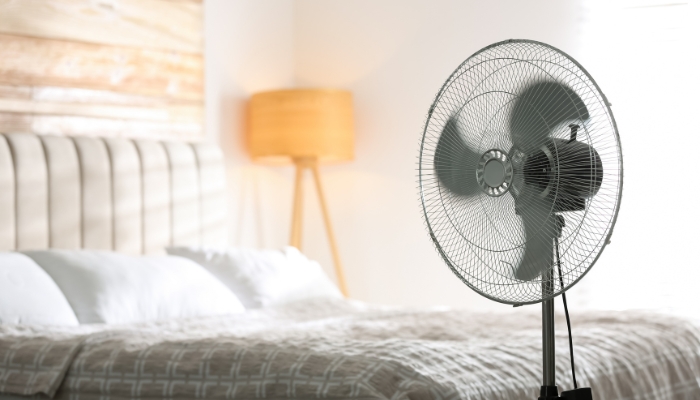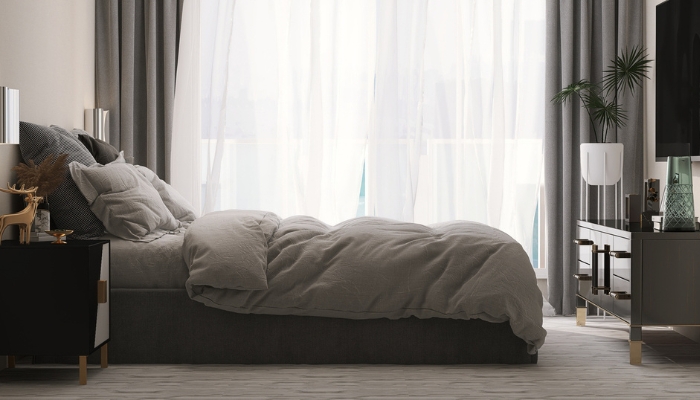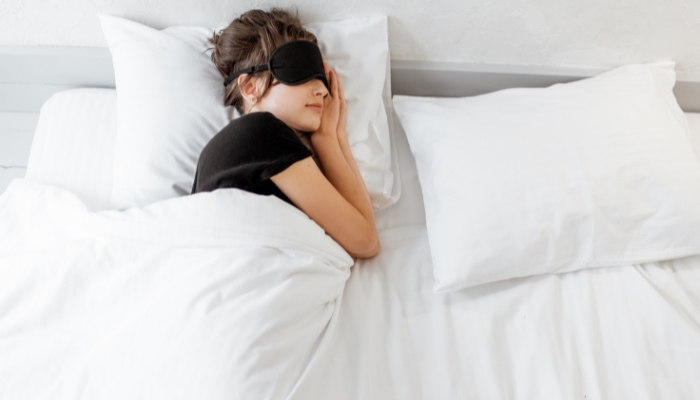Ever tossed and turned on a hot summer night, or found yourself unable to get out of bed on a dark winter morning? If so, you're not alone. The weather can have a big impact on how well we sleep, from the temperature of our bedroom to the amount of sunlight we get during the day. But why does this happen, and what can we do about it? Let's dive into the science of sleep and weather, and explore some tips for getting a good night's rest, no matter what the forecast says.

Feeling Hot, Hot, Hot...or Not: The Temperature-Sleep Connection
Ever noticed how a chilly room can make you want to burrow under the covers, while a hot room can leave you tossing and turning? That's not a coincidence. Temperature plays a crucial role in our sleep quality.
Our bodies have a sweet spot for sleep temperature, typically around 65 degrees Fahrenheit. Stray too far from this, and you might find yourself struggling to drift off. Too hot, and your body can't cool down enough to signal sleep. Too cold, and your body is too busy trying to stay warm to focus on sleep.
The solution? It might be as simple as adjusting your thermostat, using fans or heaters, or changing your bedding. Remember, everyone's ideal sleep temperature varies, so don't be afraid to experiment until you find your perfect sleep climate.
Sticky Situation: Humidity's Role in Sleep Quality
Humidity, or the amount of moisture in the air, is another weather factor that can mess with your sleep. High humidity can make your bedroom feel hotter than it actually is, leading to discomfort and restlessness. It can also encourage the growth of mold and dust mites, which can trigger allergies and disrupt sleep.
On the other hand, low humidity can dry out your nasal and throat passages, leading to snoring, coughing, or a dry mouth and throat, none of which are conducive to a good night's sleep.
To strike the right balance, aim for a humidity level between 30% and 50%. You can control humidity with devices like humidifiers, dehumidifiers, or air conditioners. And don't forget to consider your bedding - moisture-wicking sheets and pillowcases can be a game-changer in a humid environment.

Seasonal Snooze Shifts: How Changing Seasons Impact Your Sleep
As the seasons change, so does our sleep. Ever noticed how you tend to feel sleepier in the winter months? That's not just because of the cold weather. The shorter days and longer nights can affect your body's internal clock, or circadian rhythm, making you feel tired earlier in the evening.
On the flip side, the longer daylight hours in the summer can make it harder to fall asleep at your usual bedtime. The heat can also make it more difficult to stay comfortable and sleep deeply.
To combat these seasonal sleep disturbances, try to maintain a consistent sleep schedule year-round. Use blackout curtains or an eye mask to block out early summer sunrises or late sunsets. Consider adjusting your thermostat or bedding to accommodate temperature changes.
Stormy Slumbers: Weather-Related Sleep Disorders
Believe it or not, the weather can actually cause certain sleep disorders. For instance, people with Seasonal Affective Disorder (SAD) often experience changes in their sleep patterns. SAD is a type of depression that's related to changes in seasons, and it usually starts in the fall and continues into the winter months, sapping your energy and making you feel moody. More sleep and lethargy are common symptoms.
Another weather-related sleep disorder is Environmental Sleep Disorder. This occurs when environmental factors, like a change in weather or temperature, disrupt your sleep.
If you think you might be suffering from a weather-related sleep disorder, it's important to seek help from a healthcare professional. They can provide you with the appropriate treatment options to help manage your symptoms and improve your sleep.
Disclaimer: The information on this site is not intended or implied to be a substitute for professional medical advice, diagnosis, or treatment. If you suffer from any symptoms or diagnoses we discuss, please consult your physician prior to making any decisions.

Sleeping Through the Seasons: Tips for Weather-Proofing Your Sleep
If you're finding that changes in the weather are messing with your sleep, don't worry. There are plenty of ways to weather-proof your sleep routine and ensure you're getting the rest you need, no matter what's happening outside.
- Control Your Bedroom Climate: Invest in a good air conditioner or fan for the summer months and a heater for the winter. This will help you maintain a consistent temperature in your bedroom year-round.
- Invest in the Right Bedding: Use lightweight, breathable bedding during hot weather, and warmer, heavier bedding during cold weather. Consider a mattress with cooling technology for those hot summer nights.
- Stay Hydrated: This is especially important during hot weather, but it's a good habit to get into year-round. Dehydration can disrupt your sleep, so make sure you're drinking enough water throughout the day.
- Use a Humidifier or Dehumidifier: If humidity is a problem in your area, these devices can help control the moisture level in your bedroom.
- Keep a Regular Sleep Schedule: This can help regulate your body's internal clock and help you sleep better, regardless of the weather.
Remember, everyone's different, so it might take some trial and error to find what works best for you. But with a bit of patience and experimentation, you can weather-proof your sleep routine and get the rest you need, come rain or shine.
So, there you have it. Weather can indeed affect our sleep in more ways than we might think. From temperature fluctuations to seasonal changes, our sleep patterns can be influenced by what's happening outside. But with a few adjustments and the right approach, we can weather-proof our sleep and ensure we're getting the rest we need. If you're still struggling with sleep, it might be time to consider your mattress. At Hudson Appliance, we offer a range of mattresses designed to provide comfort in all seasons. Stop by or contact us to find out more!